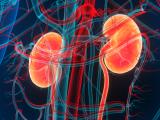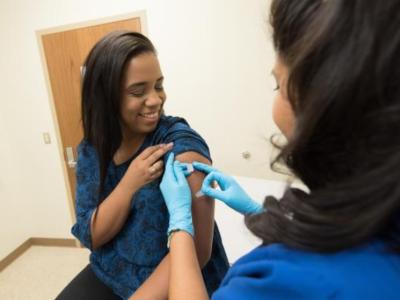A new study from clinicians at the University of California-Los Angeles (UCLA) offers more insight into the mental and physical components of long COVID, suggesting that people who perceived having more cognitive difficulties during their acute COVID-19 illnesses—including "brain fog," anxiety, and depression—were more likely to later report the lingering physical symptoms that define long COVID-19.
The authors of the study, which appeared in JAMA Network Open late last week, said the findings came from data collected for clinical purposes from 766 patients enrolled in UCLA's SARS-CoV-2 Ambulatory Program. The program was started to follow up on patients who had either been hospitalized for COVID-19 at UCLA or seen as an outpatient at 1 of 20 associated clinics from April 2020 to February 2021.
Clinicians interviewed patients about symptoms by telephone at 30 days, 60 days, and 90 days following hospital discharge or, in the case of outpatients, after the date of a positive COVID-19 test. The average age of participants was 60 years, and 52.1% were men.
All questions were meant to gauge if a patient was back to pre-COVID health, physically and mentally.
Cognitive difficulties tied to twice the risk of long COVID
Patients were asked about nine symptom clusters during the previous 4 weeks: fever, chills or night sweats; loss of smell or taste; fatigue; shortness of breath; chest pain; numbness or tingling; nausea, vomiting or diarrhea; muscle aches; and rash.
They were also asked three questions to assess cognitive function: Could the patients get organized? Could they concentrate on a television show or while reading book? And had they forgotten what was discussed during a telephone call within the previous month?
The researchers found that 276 (36.1%) of the patients surveyed within 4 weeks of hospital discharge or infection perceived that they had cognitive difficulties. Of the 276 patients (36.1%) who perceived a cognitive deficit, 63 patients (22.8%) responded yes to only 1 item, 53 patients (19.2%) responded yes to 2 items, and 160 patients (58.0%) responded yes all 3 items.
And these 276 patients were twice as likely to report also experiencing physical symptoms at 60 and 90 days indicative of long COVID. A total of 118 of 276 patients (42.8%) described long COVID symptoms during follow up, compared with 105 of 490 patients (21.4%) who did not report cognitive difficulties in the first 4 weeks following infection.
Key role of anxiety, depression
Neil Wenger, MD, MPH, senior study author, told CIDRAP News that answers to these questions about perceived cognitive struggles were not associated with cognitive defects as strongly as the presence of anxiety and depression were.
Study data showed that 109 patients (14.2%) had a history of cognitive difficulties before COVID, 153 patients (20.0%) had a diagnosis of depression, and 213 patients (27.8%) had a diagnosis of anxiety. Wenger is a professor in the Division of General Internal Medicine and Health Services Research at UCLA.
It turns out, anxiety and depression symptoms during the acute phase of COVID are most predictive of developing long COVID symptoms.
"It turns out, anxiety and depression symptoms during the acute phase of COVID are most predictive of developing long COVID symptoms," he said. "We thought this is a really important finding, as the world is trying to figure out what is long COVID, what are the predictors? And it seems like we are tapping into one part of the condition."
Wenger was careful to explain that the findings were not conclusive, and they do little to explain how and why long COVID develops. Are people with anxiety and depression experiencing a level of brain inflammation that makes them susceptible to long COVID? Or are they more likely to look for lingering symptoms?
"Nobody knows," said Wenger. "But as a clinician, if I see someone with brain fog in the acute stage of COVID, I am going to be attentive to following up with them, because it seems these people are at risk for developing long COVID."
Wegner also said the observations from the ambulatory clinic can, at best, provide a clue to researchers about where to go next in understanding long COVID.




















